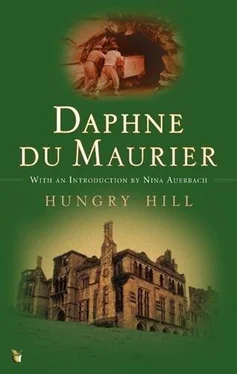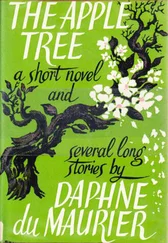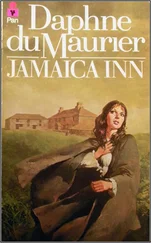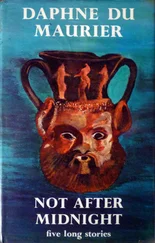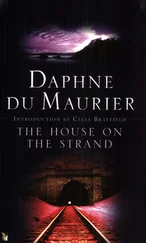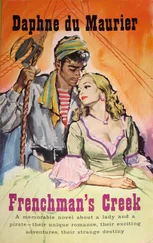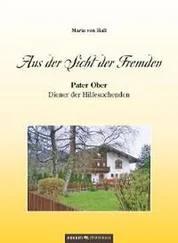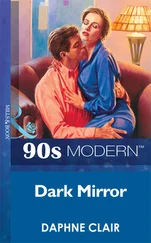Daphne du Maurier - Hungry Hill
Здесь есть возможность читать онлайн «Daphne du Maurier - Hungry Hill» весь текст электронной книги совершенно бесплатно (целиком полную версию без сокращений). В некоторых случаях можно слушать аудио, скачать через торрент в формате fb2 и присутствует краткое содержание. Жанр: Историческая проза, на английском языке. Описание произведения, (предисловие) а так же отзывы посетителей доступны на портале библиотеки ЛибКат.
- Название:Hungry Hill
- Автор:
- Жанр:
- Год:неизвестен
- ISBN:нет данных
- Рейтинг книги:3 / 5. Голосов: 1
-
Избранное:Добавить в избранное
- Отзывы:
-
Ваша оценка:
- 60
- 1
- 2
- 3
- 4
- 5
Hungry Hill: краткое содержание, описание и аннотация
Предлагаем к чтению аннотацию, описание, краткое содержание или предисловие (зависит от того, что написал сам автор книги «Hungry Hill»). Если вы не нашли необходимую информацию о книге — напишите в комментариях, мы постараемся отыскать её.
Hungry Hill — читать онлайн бесплатно полную книгу (весь текст) целиком
Ниже представлен текст книги, разбитый по страницам. Система сохранения места последней прочитанной страницы, позволяет с удобством читать онлайн бесплатно книгу «Hungry Hill», без необходимости каждый раз заново искать на чём Вы остановились. Поставьте закладку, и сможете в любой момент перейти на страницу, на которой закончили чтение.
Интервал:
Закладка:
The women and children in the dressing-sheds who had the work of washing the ore would look up as he drove past, and he would have the feeling that they laughed at him, and resented him too, believing that he had the place by favour and did not need the money.
At the end of each month, when the books had to be made up and the returns sent in, Hal would find himself working overtime to get through with the stuff on his desk, and then he too would catch the six-o'clock truck with the miners in the village, Jinny rising bright and early to keep him company and see that he ate his breakfast before leaving. The first time he did this the men stood apart from him in the truck, joking and talking amongst themselves.
There was a fellow called Jim Donovan, son of Pat Donovan who kept the farm beneath the hill, and the first of his family, by his talk, to become a miner.
"Sure, it's the truth," he said, "we owned the land for miles around in the old days," looking over his shoulder at Hal as he spoke.
"That's right, Jim," said his mates, "you had it on lease from the devil."
"No devil at all," answered Jim, "my grandfather's grandfather's grandfather, he was nothing less than a Chief, living below there at the castle, and as for knowing a pig from a sow, I tell you he wouldn't have soiled his hands with either. He had a thousand men to work for him, and the King of France was his best friend."
"That's true," said one of the men; "the French were always for helping us, and the Spanish too. I had it from my father."
"Who was it, then," asked another, "who shot a landlord for interfering with the smugglers? That's another true story, and happened in Doonhaven."
"It was one of the Donovans," said Jim, "and small blame to him either. What right had the landlord to spoil the livelihood of innocent men? I'd shoot anyone who did the same to me."
"And be strung up by the redcoats in the garrison," laughed his friend.
"Oh, I care nothing for them," said Jim, waving his hand. "We'll be rid of the lot of them before you can turn round. And then I'll invite you to shoot hares on the island."
If Hal had been in Canada he would have joined in the fun, and chaffed Jim Donovan, as he had done his fellow-ranchers. But back at home it was different. These men could not forget he was a Brodrick, whose father owned Clonmere and the mine also, and they believed him stiff and proud. Should he try to joke with them they would feel awkward and shy, or imagine he did it out of condescension, to stand in well with them for some ulterior design. And so, in spite of smiles and valiant efforts to seem friendly and natural, Hal would achieve no more than a "Good-day," and a remark about the weather.
It was part of his work, as clerk to the manager, to supervise the payment of wages every Friday. It was the day he hated most in the week. He would have to sit in the counting-house, beside Mr. Griffiths, with a stack of coins in front of him, reading the names out from a sheet of paper, and then handing the required amount to the manager as each man in turn stepped forward to take his pay. The wages seemed so pitifully small, the coins so few in number. Every Friday morning his heart would sink as he heard the tramp of men queuing up outside the door of the counting-house, and then Mr.
Griffiths would take his place beside him and the names would be called. The skilled miners first, and the engineers, descending in scale to the surface men, and the dressers, and the women and children.
"Pat Torrens," he would call, and a man would step forward, lean and grey, his skin like wrinkled parchment, and a great Adam's apple moving in his throat, big pouches under his eyes. Two pounds.
Two pounds for working eight hours at a stretch, on his back perhaps, in the damp, low levels beneath Hungry Hill, and coming to the surface to change his clothes in the draughty shed where the wind whistled through the open doors, home to his cabin or cottage to eat potatoes and salt fish and sleep before the reeking turf fire, and then back again, down to the black rock-face and the wet walls of the mine.
Hal would hand over the little pile of coins, avoiding the man's eye. Surely Pat Torrens must think to himself, "This is one of the men I'm working for.
Every ounce of stuff I break out of the rock and bring to the surface, with my sweat and labour, turns into gold when it is sent across the water to Hal Brodrick's father. He lives in a great house and has servants and carriages and sits on his backside all day. He does not even have the running of the mine, like the manager. He just lies back and puts the gold into his pockets." Pat Torrens would shuffle from the counting-house and Hal would call the next name on the list.
And so on and so on for an hour or so, finishing with the women and children. One or two little fellows of not more than nine years of age, coming forward for their two-shilling piece, the reward for standing barefoot on the tin as it was washed in the "buddle," or for breaking large pieces of ore with a hammer outside the dressing-sheds.
One Friday morning, when the last had been paid, Hal turned to the manager in anger and disgust.
"Surely it's not right?" he said. "They ought to get more. Why, when every man, woman and child in the mines has been paid, it's barely a tenth of what goes to my father."
Mr. Griffiths stared at him.
"The pay is good," he said. "I've known it lower in other mines. They don't expect more. Of course your father must make his profit. He's the owner, isn't he? Don't tell me you're a Radical-you'll be preaching revolution next."
"I'm not a Radical, or a revolutionist," said Hal. "I don't care a twopenny damn about politics. But I feel ashamed, that's all."
"Oh, come," said the manager, getting up and reaching for his coat, "that's all false sentiment. You keep the books in order, and forget the moral side of it. Besides, the day will come when you will be the owner yourself.
You can give all your profits away then, if you feel like it."
"Yes," said Hal, "but that's just the point. I shan't want to. I'll be thinking of sitting back and taking my ease, the same as my father."
He would drive home in the evening, turning his back on the sight and sound of the mines. The tall chimneys, black against the hill, would point their fingers to the sky, and a glare of fire would come from the open doors of the boiler-houses. He would hear the winding rattle of the drums in the shafts, and the ceaseless throb of the engine pumps. There would be the inevitable pungent smell in the air coming from the dressing-sheds where the ore was cleansed. And once away, along the road, with the chimneys out of sight, and the smoke from the furnaces blown eastward, and the tramping miners gone below on night-shift, there would be no other sound but the steady clop-clop of Tom Callaghan's mare taking Hal back to Doonhaven, and on his left the smooth, untroubled waters of Mundy Bay. Hungry Hill would rise above him, white and silent under the moon, and away yonder the pin-prick lights of Doonhaven danced and flickered.
Yes, thought Hal, and for all my brave talk to Griffiths about the hard work and low pay of the miners, all I want really is to be living in comfort in Clonmere, because of them, with Jinny dressed for dinner as my mother used to do, and a butler waiting on her instead of that half-witted girl. I want to enjoy the mines, as my forebears did, and forget the cost.
I don't want to go back to my poky little house in the village street and know that Jinny has cooked my supper for me and is feeling tired and worn.
He would leave the trap with Patsy at the Rectory, and walk through the village to his house.
A smell of cooking would greet his nostrils as he entered, a thing he detested and which it was impossible to smother in so small a house, for all the care that Jinny took.
Читать дальшеИнтервал:
Закладка:
Похожие книги на «Hungry Hill»
Представляем Вашему вниманию похожие книги на «Hungry Hill» списком для выбора. Мы отобрали схожую по названию и смыслу литературу в надежде предоставить читателям больше вариантов отыскать новые, интересные, ещё непрочитанные произведения.
Обсуждение, отзывы о книге «Hungry Hill» и просто собственные мнения читателей. Оставьте ваши комментарии, напишите, что Вы думаете о произведении, его смысле или главных героях. Укажите что конкретно понравилось, а что нет, и почему Вы так считаете.
